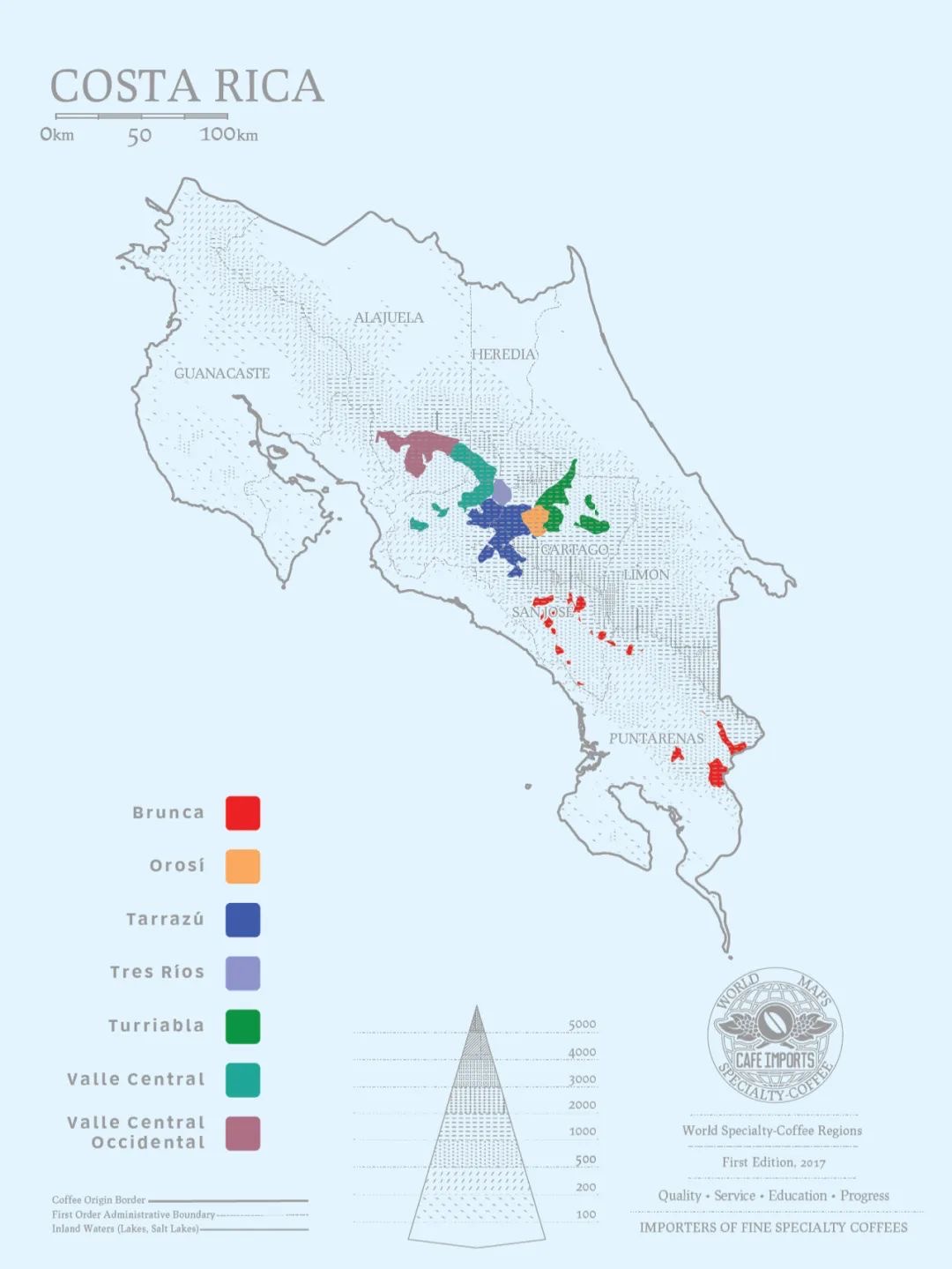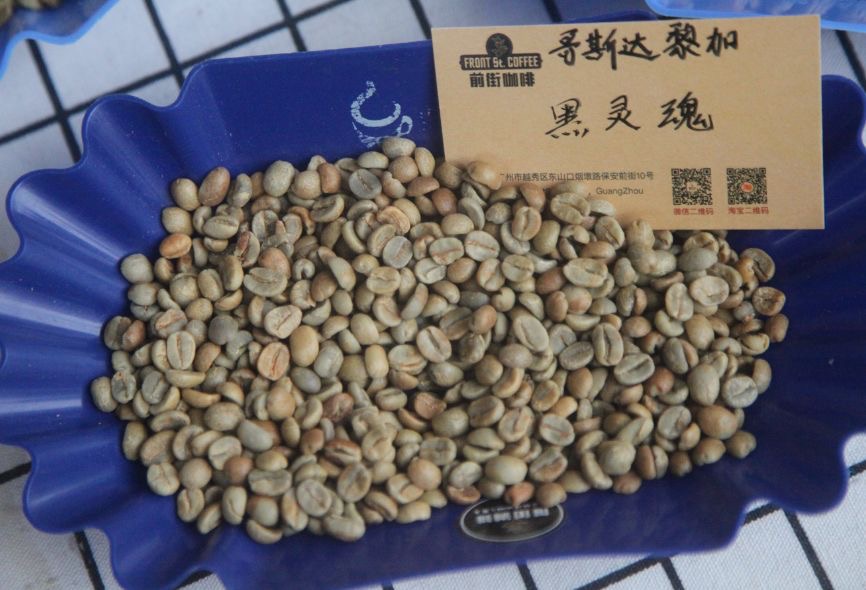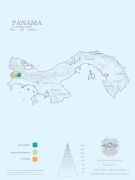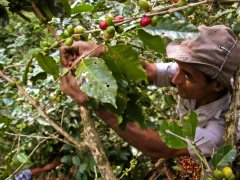High altitude coffee expensive coffee Costa Rican geographical features, coffee flavor and production culture
Many people think that Costa Rican coffee beans are perfect and classic cups. Costa Rican beans are characterized by bright, clean, balanced and highly aromatic, providing a very consistent flavor.
Costa Rica has more than 200 identifiable volcanic rocks dating back 65 million years. Over the past few thousand years, volcanic eruptions have injected rich minerals into the soil, making the soil extremely fertile. The volcanic ash is rich and the soil is slightly acidic. This promotes the good distribution of coffee plant roots, which in turn maintain humidity and promote oxygenation. These properties energize plants and help them get high-quality beans. Coffee is not the only thing that thrives in volcanic soil. The rich terrain provides homes for many plants and trees. These trees create homes for tropical birds and animals and play an important role in creating the most delicious coffee. Shady coffee takes a little time to mature, which creates a better taste and a more complex flavor of beans.

Alpine volcanoes provide another important feature for coffee cultivation-high altitude. The higher the altitude, the more delicious the coffee. At an altitude of more than 4000 feet (1200 meters), the high altitude of the Central Valley allows beans to ripen more slowly, creating a harder, less porous bean. Hard bean coffee has higher acidity, which is the greatest aromatic characteristic of coffee. Costa Rica has several microclimates caused by different elevations and climate patterns. There are eight different coffee producing areas, all with ideal elevations and fertile soil. However, due to the microclimate, this small country still offers a variety of flavors from various regions.

Coffee production is an important part of Costa Rican culture, history and economy. Farmers and coffee producers are enthusiastic and serious about their deals. From small single estates to the largest cooperatives, Costa Rican coffee factories are impressively clean, innovative and exacting standards. Due to extensive human touch and care, processed and ground coffee is close to a level of art that is not easy to surpass. Picking by hand is the only way to collect beans, ensuring that only ripe berries are selected at the best stage. With wet processing, the flesh of the beans is removed on the day of picking. In most cases, Costa Rica's sun-assisted drying of beans in the sun is the preferred method. Costa Rica is also known for its environmentally friendly and innovative coffee processing. Strict laws ensure that coffee processing produces minimal waste while encouraging the creative use of materials.
Important Notice :
前街咖啡 FrontStreet Coffee has moved to new addredd:
FrontStreet Coffee Address: 315,Donghua East Road,GuangZhou
Tel:020 38364473
- Prev

Rose Summer Flavor Panamanian Jade Manor Rosy Coffee varieties and their Origin and rise
Gesha, a plant variety grown at Hacienda La Esmeralda, a farmer in Panama, or geisha coffee has broken the record for green coffee in the past few years: a batch of coffee sold at auction in 2007 for $130 a pound. The Gesha and the record-breaking items come from the same field, crop and variety, but they are being auctioned.
- Next

How to make Cuban coffee? Geographical features of Cuba and culture of coffee cultivation, production and consumption
Cuba Geography and Coffee Cultivation: An important coffee-growing region of Cuba is located in the Sierra Maestra Mountains in eastern Cuba. The pleasant climate and fertile reddish-brown soil are rich in humus, so coffee can be grown without fertilizer, giving Cuba a good reputation for growing some of the best coffee. The towns of the Maestra Mountains have a history of growing coffee, people
Related
- Beginners will see the "Coffee pull flower" guide!
- What is the difference between ice blog purified milk and ordinary milk coffee?
- Why is the Philippines the largest producer of crops in Liberia?
- For coffee extraction, should the fine powder be retained?
- How does extracted espresso fill pressed powder? How much strength does it take to press the powder?
- How to make jasmine cold extract coffee? Is the jasmine + latte good?
- Will this little toy really make the coffee taste better? How does Lily Drip affect coffee extraction?
- Will the action of slapping the filter cup also affect coffee extraction?
- What's the difference between powder-to-water ratio and powder-to-liquid ratio?
- What is the Ethiopian local species? What does it have to do with Heirloom native species?

